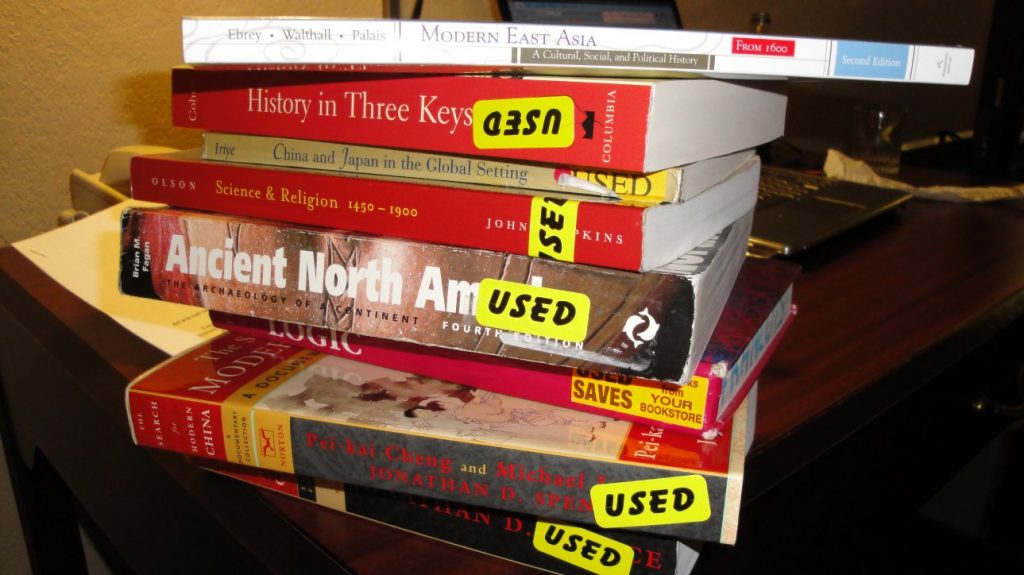
I took Alex up to James Madison today and bought the books for his classes. I buy lots of books. In my experience, a good hardcover book costs around $20. Not textbooks, evidently. One book, a small book, called “Modern East Asia since 1600” cost $81.60. You would expect at least to get the whole history of East Asia for that kind of money. I checked on Amazon.com. It is not available in that edition. That is the trick. The editions keep on changing. Not much really changes inside, but the pages are different so students can’t properly use the old ones in coursework.
I could well understand if professors were getting kids to buy classics that would be of lasting value. It might be worth it to pay big money for a good copy of “the Iliad,” “Wealth of Nations” or “Paradise Lost”. Not that the kids would always actually read all of them, but at least they could legitimately grace their bookshelves for the next decades. Ironically, the classics are usually inexpensive. But the books they are asked to buy are rarely classics or even candidates for being classics. Don’t take my word for it or rely on my judgment. The authors obviously don’t think their tomes have any staying power, or else they wouldn’t keep on making minor alterations that require endless new editions.
So let’s talk about how Wal-Mart is different. After buying the textbooks at a total cost of more than $300, we went to Wal-Mart to buy a mini-refrigerator for Alex’s dorm room. It cost $99. How does that work? Maybe we should put Wal-Mart in charge of the textbooks.
Actually, I have to admit that I have been paying too much because I was stupid. The kids bought the books they needed and I paid for them w/o thinking much about it. I remembered that when I was in school books were expensive, but used books were usually a decent deal. But now the used books are not that much cheaper and even when the discounts are steep they start from such lofty heights that it still is outrageous and there are fewer used books because of all the new editions. I found that Walmart can indeed help, but not always and not that much. The books are still really expensive because they start off really expensive.
IMO, the problem is precisely that those making the demands (i.e. the professors) are not those making buying the books (i.e. the students) and those buying the books are not the ones paying the bills (i.e. the parents or government). It gets worse. Professors often write the kinds of books that nobody reads voluntarily. (Those professors who do write books that sell (usually for around $20) are disparaged by less popular members of the professoriate as popularizers.) Even if they didn’t write the assigned books themselves, many professors feel a kind of solidarity with their colleagues toiling in the narrow fields plowing up the dirt that where only specialists are allowed or willing to tread.
Nobody spends other people’s money as carefully as he spends his own and some people seem to think that it is a positive virtue to be generous with other people cash. You can imagine a professor saying to himself, “Scholarship is more important than money anyway and if I can help deserving but poorly remunerated fellow professors make a little extra money, who does it hurt?” Who does it hurt?Some things get cheaper over time, at least in real dollars. These things include computers, laser eye surgery, electronics & small appliances. Other things get more expensive. These include university education, medicine besides laser eye surgery and public transportation. How are these things different?
